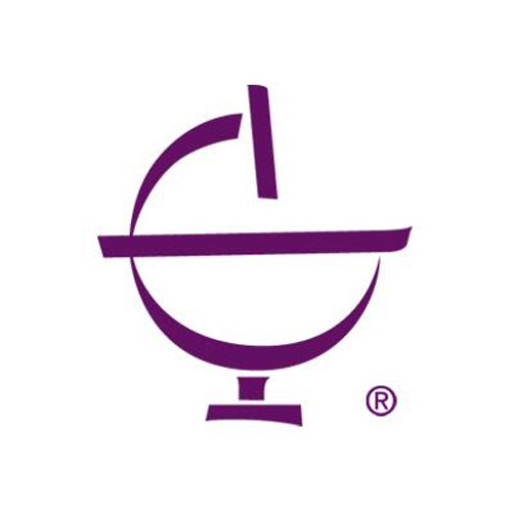The Counselling Practice programme at Tabor University offers comprehensive training designed to equip students with the essential skills and knowledge necessary for effective counselling and psychological support. This programme emphasizes both theoretical foundations and practical application, ensuring graduates are well-prepared to serve diverse populations in various settings. Through a combination of classroom instruction, supervised practice, and real-world experiences, students will gain a thorough understanding of counselling techniques, ethical considerations, and client-centered approaches. The curriculum covers key topics such as human development, communication skills, ethical standards in counselling, and specialized areas like mental health, addiction, and trauma counselling. Students will have opportunities to engage in role-playing, case studies, and internships that foster practical competence. Tabor University's focus on holistic education ensures that graduates develop not only technical proficiency but also empathy, cultural sensitivity, and self-awareness, which are critical traits for successful practitioners. The programme aims to prepare students for certification and professional practice in the counselling field, whether in clinical, educational, or community contexts. Graduates of this programme will be equipped to support individuals facing emotional, psychological, and behavioural challenges, making a positive difference in their lives. This programme is ideal for those who are passionate about helping others and wish to embark on a rewarding career dedicated to mental health and wellbeing.
The Counselling Practice program at Tabor University is designed to equip students with comprehensive theoretical knowledge and practical skills essential for effective counselling and psychological support. Throughout this program, students will explore various counselling methodologies, communication techniques, and ethical considerations that are vital for fostering a supportive and confidential environment for clients. The curriculum emphasizes experiential learning, encouraging students to engage in supervised counselling sessions, role-playing, and peer review exercises to develop their interpersonal skills and professional competence.
Students will study core topics such as human development, psychological theories, mental health issues, and crisis intervention strategies. The program also covers areas like diversity and cultural competence, allowing future practitioners to work effectively within diverse populations. As part of their training, students will learn to assess client needs, develop tailored treatment plans, and evaluate progress, ensuring a client-centered approach at all times. The program includes modules on ethics and professional standards, preparing students to uphold integrity and confidentiality in their practice.
Practical training is a core component of the Counselling Practice program, with students participating in internships and practicum placements in real-world settings. These opportunities enable students to apply their knowledge under supervision, gain valuable hands-on experience, and build confidence in their counselling abilities. Additionally, the program emphasizes reflective practice, encouraging students to continually evaluate their skills, learn from experiences, and pursue ongoing professional development.
Graduates of the Counselling Practice program at Tabor University will be well-prepared for careers in various settings, including schools, clinics, community health organizations, and private practice. They will have the foundational competence necessary to support individuals facing mental health challenges, life transitions, or personal growth goals. The program's combination of rigorous academic coursework and practical training ensures that graduates are capable, ethical, and compassionate counselling professionals dedicated to making a positive difference in people’s lives.
- Relevant bachelor degree, or equivalent
- 2 personal references
- Interview
- For entry to thesis component, applicants must have completed the first-year components, or an approved equivalent, in a standard acceptable to the Head of Postgraduate Counselling and have successfully completed a Led Research or Study Section
The financing of the Counselling Practice program at Tabor University is primarily structured through a combination of tuition fees paid by students, governmental grants, and potential scholarships or financial aid options. As a private higher education institution, Tabor University sets tuition fees that are competitive within the region, with detailed information available on their official website. These fees typically cover the costs associated with faculty salaries, administrative support, educational materials, and facilities maintenance necessary for delivering the program effectively.
Students pursuing the Counselling Practice program may have access to various funding opportunities aimed at reducing financial burdens. The university offers scholarships based on academic performance, financial need, and other criteria to support qualified applicants. Additionally, there may be government-sponsored educational grants or subsidy programs that eligible students can apply for to assist with their study expenses.
In some cases, students are encouraged to seek external funding sources such as private scholarships, employer sponsorships, or student loans, depending on their individual circumstances. Tabor University may also provide guidance counseling to help students navigate available financing options and apply for appropriate funding opportunities.
The program’s cost structure might also include additional expenses such as registration fees, examination fees, and costs related to practical placements or internships necessary for the counselling practice component. The university's financial department provides detailed payment plans and schedules to facilitate the planning process for prospective students.
Overall, the financing system for the Counselling Practice program at Tabor University is designed to be accessible and supportive, leveraging a mix of institutional, governmental, and private resources to support students' educational pursuits. For exact figures, terms, and eligibility criteria, prospective students are advised to consult the official Tabor University website or contact the university's admissions and financial aid offices directly.
Counselling Practice at Tabor University offers comprehensive training designed to prepare students for effective practice in the fields of counselling and mental health support. The program emphasizes developing core competencies in listening, communication, and interpersonal skills, alongside a solid foundation in psychological theories and ethical considerations. Students are encouraged to engage in practical learning experiences, including supervised internships and community projects, to apply their knowledge in real-world settings. The curriculum covers various counselling approaches such as cognitive-behavioral therapy, client-centered therapy, and solution-focused counselling, enabling graduates to tailor their practice to diverse client needs. Additionally, the program integrates coursework on mental health issues, developmental psychology, and crisis intervention, equipping students with a holistic understanding of mental well-being. Faculty members are experienced practitioners and researchers committed to fostering a supportive learning environment. The program aims to produce competent counselling professionals capable of working in educational, clinical, and community settings, contributing positively to individual and societal mental health. Upon completion, graduates receive a recognized qualification that enhances their employment prospects and prepares them for further postgraduate specialization if desired. Overall, the Counseling Practice program at Tabor University combines theoretical knowledge, practical skills, and ethical practice to ensure students are well-equipped for a career dedicated to helping others improve their mental health and life quality.









